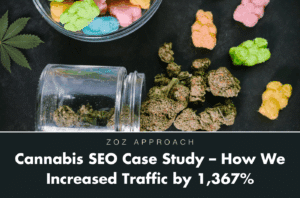One of the more interesting and complex debates within and across agencies, brands, and research vendors is trying to determine the value of investing in proprietary research.
On the “pro” side, we hear arguments about gaining market intelligence, empathy, and understanding of your external buyers, sources of influence, and even internal employees.
On the “no” side, we hear arguments about the time and money required, and the expectation that the answer exists somewhere on the internet and only needs to be found.
What is Proprietary Research?
Proprietary research is any research and resulting data shared only with your organization and relevant partners, and not available to others via licensing agreements or public sharing. In other words, only you have access to the learnings, thereby creating a competitive advantage
There are two pieces that are not important to this definition:
- Who conducts the research. It could be led by an internal team, an offhand discussion over drinks, an established research firm, an external agency, someone in your finance department, a consultant, or listening to your children talk.
- What type of data you obtain. It could be a quote, a point of view, an observed pattern, a keynote presentation, site traffic data, a formal survey, focus groups, social listening, ethnographic data, corporate history, etc.
There are two critical truths of proprietary research:
- We need to acknowledge that proprietary research alone is not the goal. The end goal should never be to commission proprietary research. It is a means to an end, and that end is creating a strategy to overcome a business challenge or capitalize on a business opportunity. To this end, it is a good idea to remain familiar with the types of research available (or have a partner who is) but beware of those who try to sell you on the opportunity to get smart without the context of your business needs.
- We need to acknowledge that proprietary research alone will not provide the final answer. Proprietary research and data should “fill the gaps” remaining after synthesizing the data, reports, and expertise from internal talent and external partners.
This last point is critical as many researchers (and brand partners) prefer to skip organizing what’s already shared knowledge and rush to conduct research. While it is true that it may take extra time and additional costs to do this step, it is critical to protect teams from researching what is already known. Taking some time for this first step allows teams to create solid research objectives to “fill the gaps” and build collective knowledge.
Is Proprietary Research Worth the Investment?
Almost always.
However, with more and more data available online, and synthetic research emerges, the right follow-up question is what type of proprietary research is worth investing in?
The truth, while sometimes frustrating, is “It depends.”
It depends on your business challenge and/or opportunity.
It depends on what “gaps” emerge from your synthesis of existing research.
It depends on your timeline and budget.
And, most critically, it depends on what is needed to support your strategic recommendation.
Is your company comfortable with qualitative and more directional learnings? If so, a series of qualitative discussions online or over the phone with your audience(s) often provides excellent data to “fill the gaps” and create a more robust analysis. More formal focus groups or ethnographies are also strong research methodologies if your timeline and budget can accommodate them.
Or, does your organization require more substantive and statistically significant data? If so, an online survey can yield strong results. This can be achieved through leveraging your existing customer base, a nationally representative online survey, or a more bespoke quantitative study with a reputable research firm.
At Zozimus, we have found that the majority of our client partners’ knowledge needs can be addressed with a combination of third-party research and employee stakeholder interviews, leaving very focused knowledge “gaps” that can be addressed with a series of in-person, online, or over the phone conversations with audience groups. However, some of our larger and quantitatively-oriented clients prefer formal survey data.
If you’re interested in minimizing your research investment and maximizing your return check out our strategy page and the complementary services at Zozimus.
BOSTON, MARS



